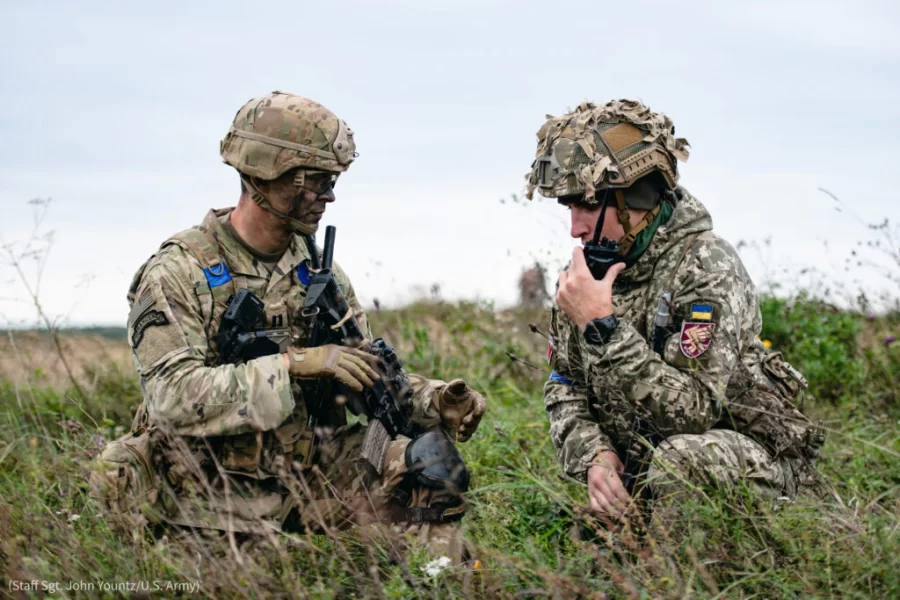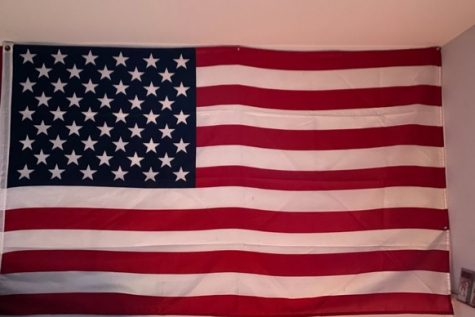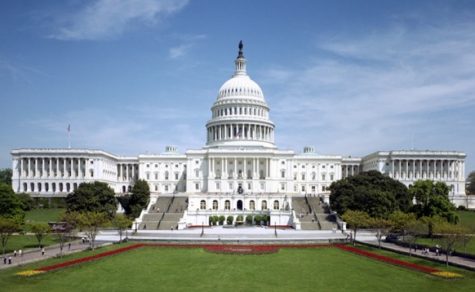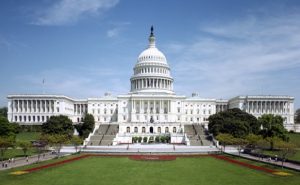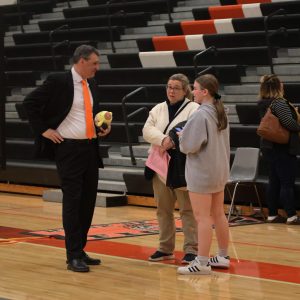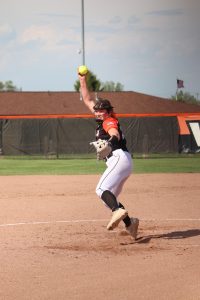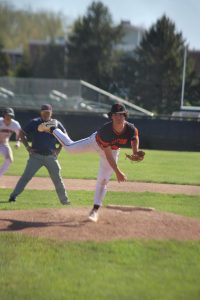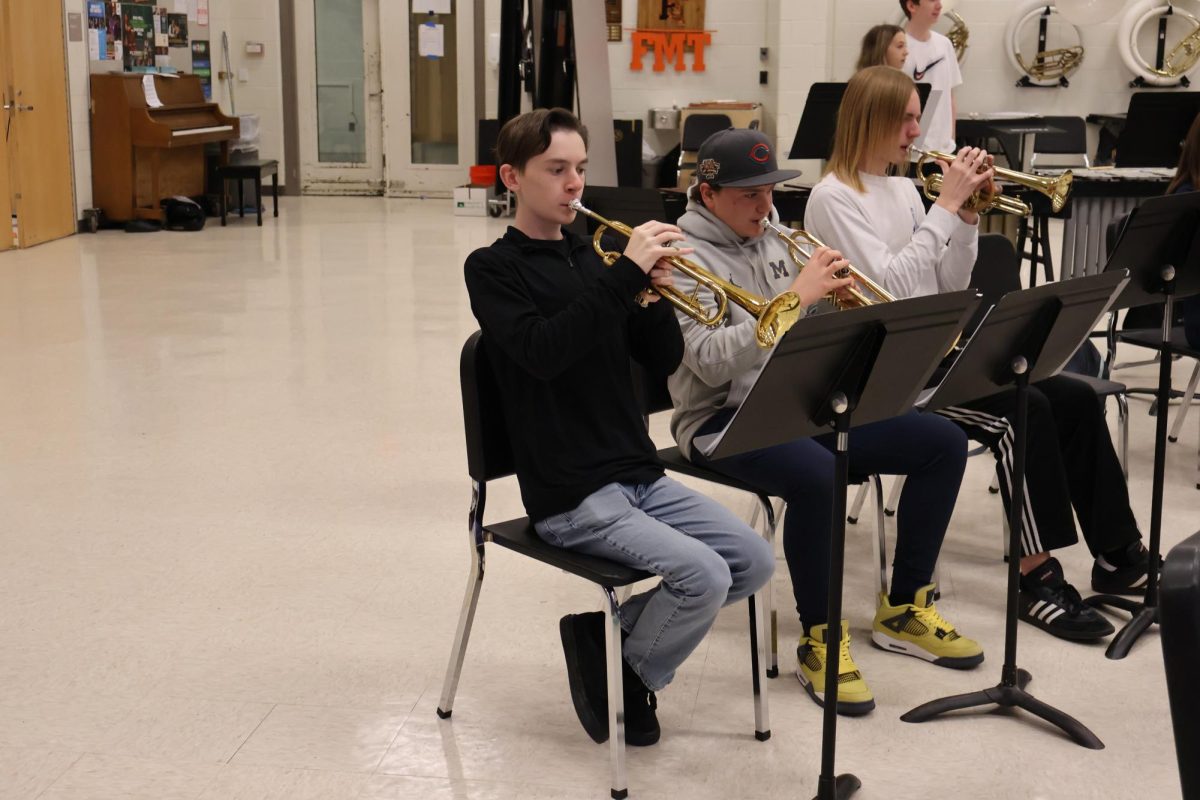Russia attempts to move further into Ukraine
March 10, 2022
On Feb. 24, Russia launched an unprovoked military attack on Ukraine, invading the country. Russian President Vladimir Putin called this attack a “special military operation.” Two of the main reasons for this attack were expansion of Russian influence, and to prevent Ukraine from joining the North Atlantic Treaty Organization (NATO).
According to Dan Bilefsky, Richard Pérez-Peña and Eric Nagourney with the New York Times, “Now 69 years old and possibly edging toward the twilight of his political career, [Putin] clearly wants to draw Ukraine, a nation of 44 million people, back into Russia’s sphere of influence. Russia presented NATO and the United States in December with a set of written demands that it said were needed to ensure its security. Foremost among them are a guarantee that Ukraine would never join NATO, that NATO draw down its forces in the Eastern European countries that have already joined, and that the 2015 cease-fire in Ukraine be implemented — though Moscow and Kyiv disagree sharply on what that would mean.”
Ukrainians and Ukraine President Volodymyr Zelenskyy have put up a stiff resistance against Russian forces, Zelenskyy fighting side by side with his soldiers even after surviving four assassination attempts. As of March 1, 677,000 Ukrainians have fled their country, as reported by ABC News, as well as 136 civilian deaths and 400 injuries reported, with numbers continuing to climb.
In an attempt to de-escalate this war, numerous sanctions have been put on Russia to hurt the Russian economy by the different NATO countries, including the United States and the United Kingdom.
According to the U.S. Department of the Treasury, “The United States, in coordination with allies and partners, continued to forcefully respond to Russia’s unjustified, unprovoked and premeditated invasion of Ukraine by imposing sanctions on the President of the Russian Federation Vladimir Putin and the Minister of Foreign Affairs, Sergei Lavrov, as well as other members of Russia’s Security Council. This builds on other sweeping actions that the United States and partners took earlier this week targeting the core infrastructure of the Russian financial system, including sanctions against Russia’s largest financial institutions, restricting the ability of the Government of the Russian Federation to raise capital, and cutting it off from access to critical technologies. Cumulatively, these actions impose unprecedented diplomatic and economic costs on Russia and further isolate it from the global financial system and international community.”
NATO countries have yet to send troops into Ukraine to assist with the war, only providing supplies to the Ukrainians and continuing further sanctions.
In his State of the Union Address on March 1, President Joe Biden stated, “We will continue to aid the Ukrainian people as they defend their country and to help ease their suffering. Let me be clear, our forces are not engaged and will not engage in conflict with Russian forces in Ukraine. Our forces are not going to Europe to fight in Ukraine, but to defend our NATO Allies – in the event that Putin decides to keep moving west. For that purpose we’ve mobilized American ground forces, air squadrons and ship deployments to protect NATO countries including Poland, Romania, Latvia, Lithuania and Estonia.
“The Ukrainians are fighting back with pure courage. But the next few days, weeks, months, will be hard on them. Putin has unleashed violence and chaos. But while he may make gains on the battlefield – he will pay a continuing high price over the long run.”
With the world questioning if there will be a World War III and Putin threatening it to be nuclear, NATO countries have continued to stand back, not assisting Ukraine with troops.
The Daily Beast reported, “Russian Foreign Minister Sergei Lavrov warned that a third world war would be “nuclear” and “destructive,” essentially warning NATO not to intervene militarily in Ukraine, a day after peace talks failed to temper the bloodshed and as Russian paratroopers descended on the city of Kharkiv, the second-largest city in the nation and the epicenter of fierce fighting.”
War in Ukraine continues after the failed peace talks between Zelensky and Putin. Ukraine civilians and their pets are welcome to seek refuge at the Poland border where they will be provided with food, water and shelter.

